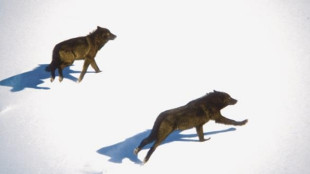
Among 130 wolves from heavily hunted tundra-taiga populations in Canada, the researchers found significantly higher levels of the stress hormone cortisol than in a group of 30 wolves from boreal forests with less intensive hunting. The tundra-taiga wolves also had increased progesterone levels, suggesting a higher-than-usual proportion of breeding females—ordinarily, only one female in a wolf pack reproduces each year. And elevated testosterone in the hunted populations also points to social instability.
“Although the long-term effects of chronically elevated stress and reproductive hormones are unknown, there are potential implications for wildlife health, welfare, long-term survival, and behavior,” the authors wrote in a lay summary of their paper. “Therefore, our findings emphasize that conservation and management plans should consider not only numeric responses, but also possible social and physiological effects of control programs on wildlife.”











RSS